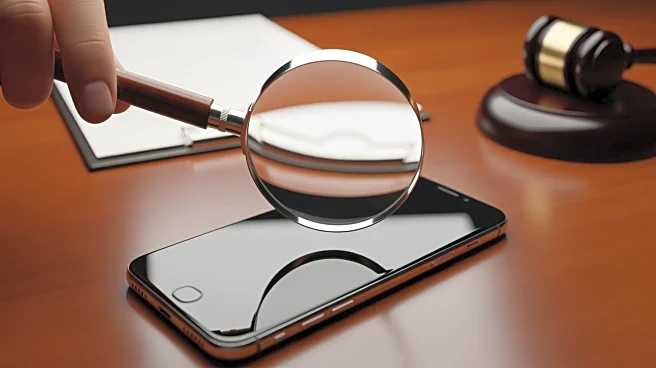What's Happening?
The Senate has passed a government funding bill that includes a provision allowing senators to sue the government if their phone records were accessed without notification. This provision is retroactive,
affecting eight Republican senators whose records were subpoenaed during the investigation into the January 6 Capitol attack. Senate Majority Leader John Thune was instrumental in adding this provision, which allows senators to seek up to $500,000 in damages. The bill does not extend these rights to House members, despite similar data requests.
Why It's Important?
The provision raises significant privacy concerns and questions about government surveillance practices. It highlights the tension between privacy rights and the needs of federal investigations, potentially influencing future legislative actions. The financial implications for the government could be substantial if lawsuits are successful, affecting public funds. The exclusion of House members from the provision may lead to debates about equitable treatment of lawmakers and the scope of privacy protections.
What's Next?
The House is expected to approve the bill, potentially leading to legal actions by the affected senators. The provision may prompt broader discussions on privacy rights and government accountability, influencing future legislative measures. Stakeholders, including civil rights groups and legal experts, may weigh in on the implications, possibly leading to debates on privacy and surveillance practices.










